Post
A catch
Save a catch to start your fishing logbook. You will be able to to share it with the community if yo want!
A fishing trip
Post an ad to go fishing with other fishermen
Save a catch to start your fishing logbook. You will be able to to share it with the community if yo want!
Post an ad to go fishing with other fishermen
Share a thought, a question with the community
My favorite cities
×Join our 1186 fishermen and our 8 cofishermen in St-John-s in Surrey. The fishing forecast is currently 3.6. The most caught fishes here are the largemouth black bass, the silver bream, the stone loach and the spined loach. Come try the most famous fishing techniques like the tips on material for squid jigging, trolling for bonito, trolling for mahi mahi or jig fishing or cast fishing for mackerel.
Our fishing forecast of St John's indicates the best time to go fishing in this city.
The Largemouth black bass
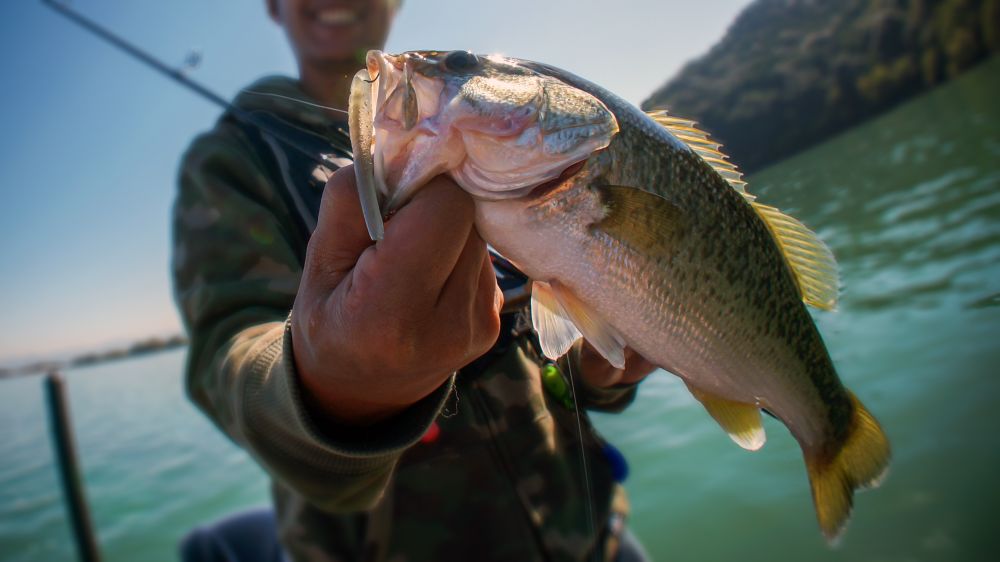
The Largemouth Black bass belongs to the Centrarchidae family. It has an average size of 50 to 70 cm for 4 kg. Its longevity is about 15 years. Spawning occurs from late spring to mid-summer. The number of eggs varies according to the size of the female, from 2000 to 14000 eggs. It is caught from March to October. Large-mouth black bass is a moderately large and robust fish. Its head is strong. Its terminal mouth is large, broad and oblique. The lower jaw is slightly prominent while the upper jaw extends to the back of the eye. The two dorsal fins are almost entirely separated. The first dorsal fin is rather low and has 10 spines. The second dorsal fin with a rounded shape is higher and has an average of 12 rays. Pelvic fins are short, rounded and have 1 spine and 5 soft rays. The pectoral fins are rather short, broad, rounded at the tip and have 13 to 15 rays. The dorsal side of the body varies from bright green to olive. The sides are pale green or golden green. There is a wide, uniform black lateral band that sometimes extends over the operculum and eye to the muzzle. The sides of the head vary from green to olive. The caudal is devoid of bright colors. The ventral side varies from milk white to yellow.
The Largemouth black bass is a famous fish you can catch in St John's.The Silver Bream
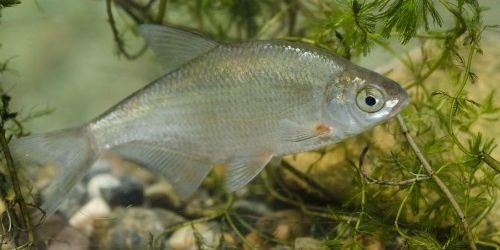
The Silver bream belongs to the Cyprinidae family. The usual size of the Silver bream is 20 to 30 cm and weighs about 200 g. The largest specimens can reach 35 cm. The life span of the Silver bream is about 10 years and it breeds from May to July. The female lays 20,000 to 60,000 eggs. It can be fished all year round. The Silver bream (Blicca bjoerkna) has a high, laterally flattened body, with a bushy back, characteristic of breams and accentuating with age. The head of this bream is small in relation to the size of its body but its eye is quite large, compared to its common cousin. Its snout is short and its mouth is oblique downwards, a characteristic common to fish seeking food on the bottom. The mouth is protractile (it unfolds forward) and free of barbells, surrounded by thick lips. The Silver bream is characterized by a long anal fin with between 22 and 26 rays, although shorter than the fresh water bream (26 to 30 rays). The dorsal fin of the Silver bream is short and high. The caudal fin is strongly indented. The Silver bream has a silvery coloring on the sides and belly, with a dark greyish-green or olive-colored back. The pelvic, pectoral and anal fins have an orange-red color. This last coloring can affect the whole stomach in older Silver breams.
The Silver Bream is a famous fish you can catch in St John's.The Stone Loach
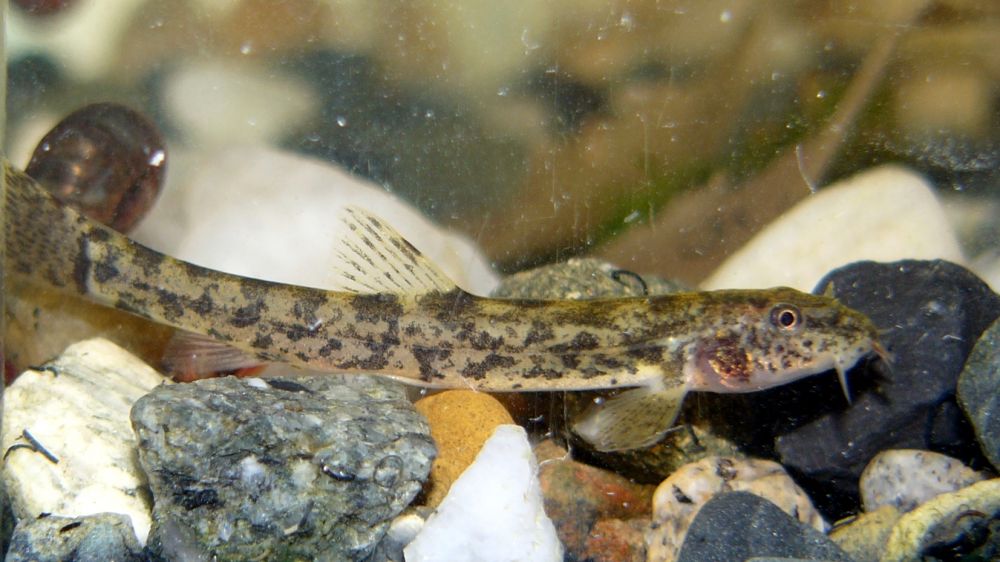
The Stone Loach belongs to the Balitoridae family. The current size of the Stone loach is about 10-12 cm and maximum 20 cm. Its longevity is 5 to 6 years. The breeding period takes place between April and July. Fertility is 50,000 to 80,000 eggs. Fishing is allowed from June to March. The stone loach has an elongated body, subcylindrical in its front part and covered with tiny scales. The head is broad and flattened. The mouth is equipped with three pairs of barbells on the upper lip. She does not have an erectile spine under her eye. The caudal fin is slightly indented, almost straight and punctuated with black. The back is brownish in color, the flanks are yellowish and the belly is clear. A dark band is present at the base of the caudal fin.
The Stone Loach is a famous fish you can catch in St John's.The Spined Loach
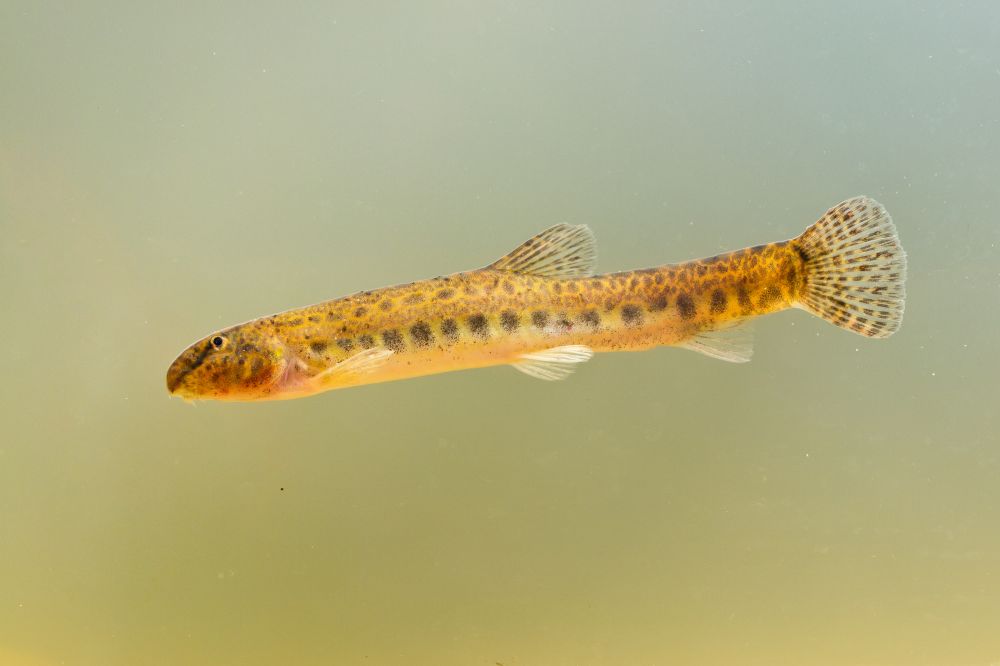
The Spined loach belongs to the Cobitidae family. The Spined Loach has a size of 6 to 12 cm. it can live up to 10 years. The breeding period runs from April to July. The female can lay up to 1500 eggs. It can be fished all year round. Its elongated, ribbon-shaped body is covered with very small scales. Variable in color, light brown to dark brown, its flanks are marked with dark spots aligned longitudinally (the points in the lower row are larger). His belly is very clear and almost white. The head is narrow. The inferior mouth (in the ventral position) is surrounded by six small barbells (4 on the upper jaw and 2 at the corner of the lips). Under each eye, there is a small moving spine that is very inconspicuous (it can be detected mainly by touch). The caudal fin has a black spot growing at its birth and is then marked with four lines of dark dots. The pectoral fins are long. If you have good eyes, you can tell the male from the female by the longer and thicker pectoral fins.
The Spined Loach is a famous fish you can catch in St John's.The River Lamprey
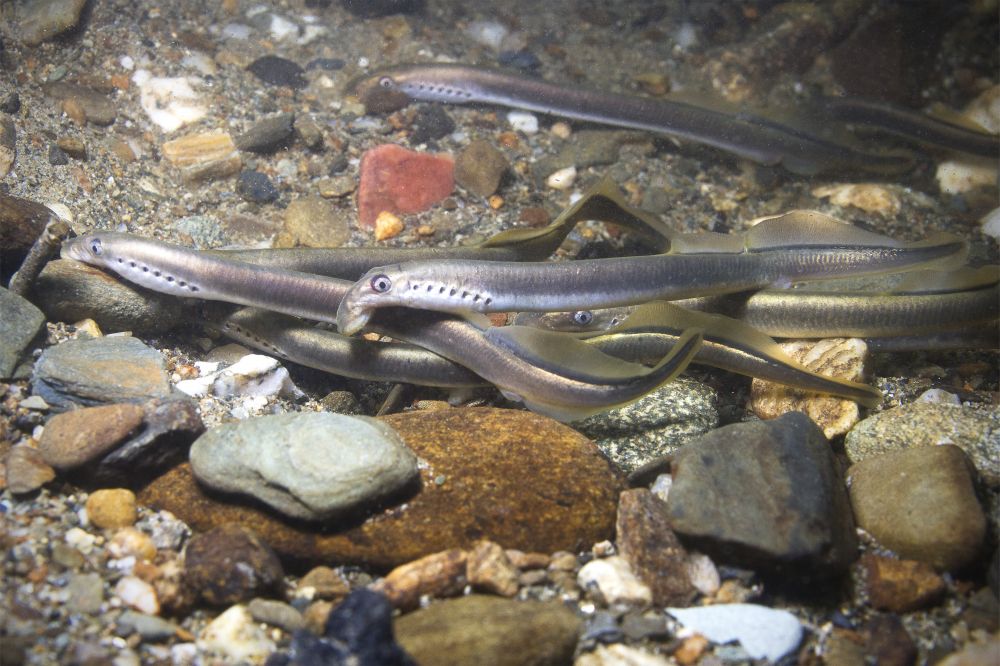
The River Lamprey belongs to the Petromyzontidae family. It measures 18 to 50 cm (average 25 to 35 cm) and weighs 30 to 150 g (average 50 to 70 g). Females are larger than males. The maximum age of the river lamprey is estimated at 10 years. Reproduction takes place between January and May. The number of eggs varies between 4,000 and 40,000. It is caught from January to May. A vertebrate with a cartilaginous skeleton and no jaws, the river lamprey has an anguilliform body, without scales and covered with toxic mucus. Its back is bluish to brownish green. Its sides are greyish, tanned, without mottling. The belly is white. The eyes are very well developed but remain primitive. A single nostril is located between the two eyes. In adults, the circular mouth in the lower position is a suction cup adapted to suction. The buccal disc and tongue are covered with only a few horny denticles, but most of them are strong and acute. On each side of the head, this species has seven pairs of circular gill holes (spiracules). The river lamprey has three fins: one caudal and two dorsal. The two dorsal fins are separated by a small interval, the second being triangular in shape, longer and higher than the first. The larvae are light-colored and its mouth is horseshoe-shaped. His eyes remain hidden under the skin. So it’s blind.
The River Lamprey is a famous fish you can catch in St John's.Our fishing forecast of St John's indicates the best time to go fishing in this city.
Our fishing forecast of St John's indicates the best time to go fishing in this city.
Our fishing forecast of St John's indicates the best time to go fishing in this city.
